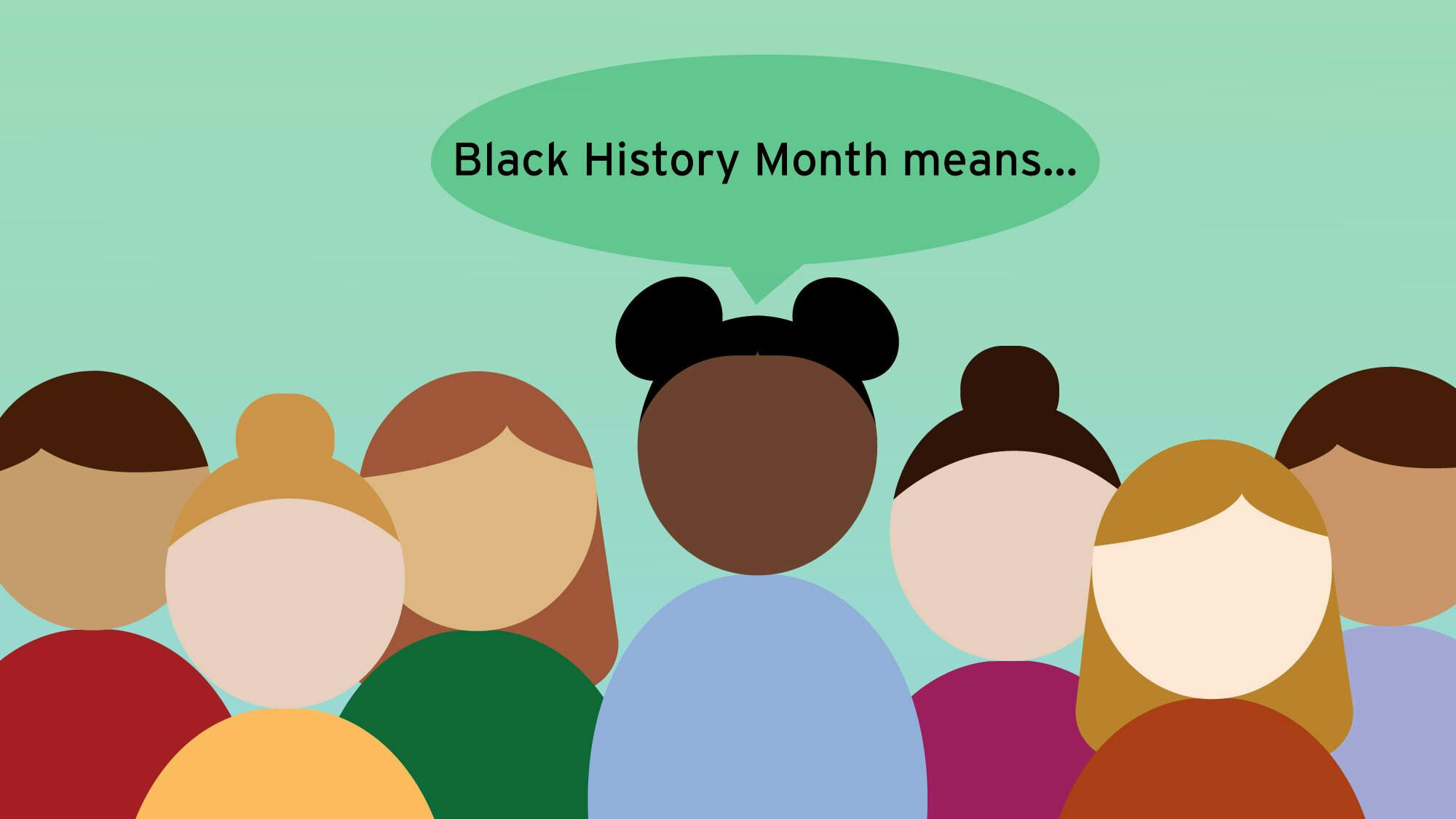Black History Month is a period every year dedicated to honoring the contributions, stories and achievements of Black people throughout history.
For students, like supply chain sophomore Kaleb Davis, the month further emphasizes the need to raise awareness for Black History.
“I went to a predominantly white middle and high school … and I played a large role in making Black History become something to celebrate at the schools,” Davis said. “At my middle school it wasn’t celebrated, nothing was talked about, so I decided to start something. Everyday we’d say a fact (about Black History). They still do it to this day.”
Davis said he’s always been sure to play a part in shining a light on Black experiences. Though he can’t speak for everyone, Davis said, it’s always important to not be afraid and stand up for what is right.
Corporations are known to celebrate Black History Month with announcements, employee diversity events and sometimes, what consumers view as platitudes. The infamous Kendall Jenner Pepsi ad caused a stir online, with people calling these actions performative.
Davis noted there is a fine line between performative activism and genuine celebration.
“When I think about that stuff, I think about how every company now is trying to promote diversity and equity and inclusion,” Davis said. “I think it’s a good thing, but, I don’t know … sometimes it does feel like you’re just hitting a checkmark on a to-do list, like you just have to do it.”
Across many academic institutions, Black History Month is emphasized with a focus on Black figures that pioneered social justice and civil rights, politics, the STEM field and literature, among many other areas.
Economics sophomore Maya Scott said that though she thinks this single-month focus is inadequate in integrating Black history into curricula year-round, it is important in forming her identity.
“As much as I think it’s kind of harmful to just name one month for Black history, I do really like the recognition,” Scott said. “ I, as a Black person, am constantly thinking about Black history. I think for me, it’s not just a month. But it’s cool to be recognized by the community.”
In some ways, Scott said, Black History Month also comes with the pressure to educate others and share her stories.
“I also personally have kind of just given up on educating others on Black History,” Scott said. “I think it’s cool if people actually take the step themselves, where I don’t have to, as a Black person, tell someone about it.”
Similarly, Davis said he used to feel burdened to represent Black people in some classrooms.
“Let’s say you’re reading something in class, the teacher asks you to speak up,” Davis said. “Personally, I don’t mind speaking up and a lot of times I know it’s not coming from a bad place. But I can see how that can be like, calling out (others).”
Davis said Black History should be taught in schools throughout the year. He said schools like to “sugar coat” history, with some neglecting to educate children about slavery. Even though these things are uncomfortable, he said, they still happened, and cannot be swept under the rug.
Black History Month is also celebrated across the media through educational posts, videos and flyers. Recently, on social media platforms like TikTok and Instagram, many users make jokes about white people serving Black people in a “reversal of roles.”
Scott said the use of comedy when approaching Black History Month can undermine its gravity.
“A part of me really likes the jokes (because) I think it’s funny to make fun of earning reparations from people who aren’t of color,” Scott said. “But I do think it takes away from the severity of Black history and the things that we should be learning about Black people.”
These jokes have also fed into discussions surrounding the characterization of Black History Month and the Black Lives Matter movement as “trends.”
“Especially for me, it’s not a trend, I lived through this stuff every day,” Scott said. “It’s unfortunate (that) a lot of people take it as a trend, and only post things because they want to seem like a certain person.”
Support student media!
Please consider donating to The State News and help fund the future of journalism.
She said it takes the difference between those who are actively trying to educate themselves and others who post once a month, or whenever Black Lives Matter is protesting.
“As long as you take the time to innovate it into your everyday life, it can no longer be a trend,” Scott said.
Discussion
Share and discuss “Black students talk the pressures they feel during Black History Month” on social media.







